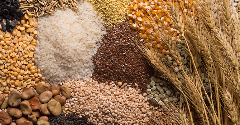News
Could nature-identical ingredients damage the natural sweeteners market?
4 Jul 2018Natural sweeteners are a major target for companies looking to make nature-identical food ingredients, but if they are produced in a lab rather than extracted from a plant, will consumers accept them as natural?

Companies looking to make nature-identical ingredients focus on growing sectors like natural sweeteners because they potentially hold the greatest reward. The processes used are not straightforward, but if they can succeed in scaling up production of rare molecules, they could bring the cost of natural sweeteners down by decoupling the most desirable compounds from their agricultural origins. However, if consumers can no longer tell whether an ingredient actually comes from nature or not, many commentators have suggested that the appeal of some natural ingredients could fade altogether.
Companies like Evolva in conjunction with Cargill, and DSM are exploring the production of nature-identical steviol glycosides – the sweet components in the stevia leaf. They both use fermentation of engineered yeast to produce some of the most sought after sweet compounds without the need for agriculture. These companies hail the process as better for the environment, because they produce ingredients with less energy and water, and allow precious agricultural land to be used for more essential foodstuffs. But it remains to be seen whether these environmental benefits chime with consumers’ expectations of natural ingredients – even if the sweeteners produced are chemically indistinguishable from plant extracts.
While steviol glycosides from fermentation are completely removed from the stevia plant, supplier PureCircle is working on a way to synthesise less common steviol glycosides like Reb D and Reb M, by starting with the more common Reb A compound derived from the plant. It says the resulting ingredients taste identical to Reb D and Reb M and have an advantage over fermentation-derived sweeteners because they retain their plant origins, thereby answering consumer demand for ingredients from nature.
Meanwhile, a German start-up called Savanna Ingredients claims to have found a way to scale up production of allulose, a low-calorie natural sugar that is found in very small quantities in nature, in foods such as figs, raisins, molasses and maple syrup. The company says its method uses enzymes to synthesise allulose from sugar beets. So far, the use of allulose in foods has been limited, but if Savanna Ingredients succeeds in scaling up the process, it could open the door to further products containing the sweetener, which has just 0.2 calories per gram, compared to 4 calories per gram in sugar.
Existing allulose suppliers include Tate & Lyle, Anderson Global Group, Astraea, and Matsutani Chemical Industry Co. Ltd.
Of course, what consumers say they want and what they actually buy often differ. Several studies have suggested that what matters most to shoppers is taste, price, convenience and nutrition. Only if expectations for these attributes are met do consumers start to consider other values, such as naturalness and ethical standards. But increasingly, consumers are rejecting artificial sweeteners, and manufacturers are responding with affordable, good-tasting natural alternatives.
When it comes to the burgeoning market for natural ingredients, suppliers face an enormously difficult task. Many have found sophisticated technologies that allow them to scale up the production of ingredients found in nature – but they must also convince consumers that these technologies are incidental.
Related news

Is the price of a sustainable and healthy diet… unsustainable?
4 Mar 2025
Healthier foods are more than twice as expensive per calorie as less healthy foods, with healthier food increasing in price at twice the rate in the past two years.
Read more
Does calorie labelling lead to reduced consumption?
27 Feb 2025
Calorie labelling of food products leads to a small, but consistent, reduction in the number of calories consumed, a study suggests.
Read more
Brands, retailers, and countries remain divided over Nutri-Score labels
30 Jan 2025
Europe's supermarkets and manufacturers are far from aligned over a standarised approach to nutrition labelling. Some welcome the non-mandatory Nutri-Score labels with open arms, while others have “considerable concerns”.
Read more
EU Parliament passes stricter packaging rules
20 Jan 2025
The European Parliament voted to approve updates to the packaging and packaging waste regulation, including enforceable re-use targets, limits on certain single-use packaging types, and restrictions on the use of PFAS “forever chemicals”.
Read more
Louis Drefyus Company powers on in plant-based with BASF ingredients acquisition
17 Jan 2025
BASF has agreed to sell its food and health performance ingredients business to Louis Dreyfus Company (LDC).
Read more
Major Belgian retailers promise standardised, reusable packaging at scale
16 Jan 2025
Albert Heijn, Aldi, Carrefour, Colruyt, Delhaize, and Lidl have launched a new reusable packaging coalition that aims to accelerate the use of reusable packaging, starting with mushrooms.
Read more
Kraft Heinz, Mondelēz, Coca-Cola, and Nestlé accused of marketing ‘addictive’ UPFs at children
15 Jan 2025
Major food manufacturers have been hit with a first-of-its-kind lawsuit alleging that they specifically engineer their ultra-processed foods (UPFs) to be addictive, and that they market the products towards children.
Read more
FDA reviews red food colour additive, Red No.3
9 Jan 2025
Amid considerations to tighten regulations around artificial ingredients, the US Food and Drug Administration (FDA) is exploring a potential ban on particular type of red food dye.
Read more
Sperri builds investment momentum with US expansion plans
7 Jan 2025
Hailed as Canada’s first organic and allergen-free plant-based meal replacement drink, food-as-medicine brand Sperri progresses its efforts to enter the US market.
Read more
Is it time for a global definition of whole grain?
30 Dec 2024
Amid a lack of harmonisation, the European Food Information Council (EUFIC) is calling for a global definition of the term whole grain to end consumer confusion.
Read more